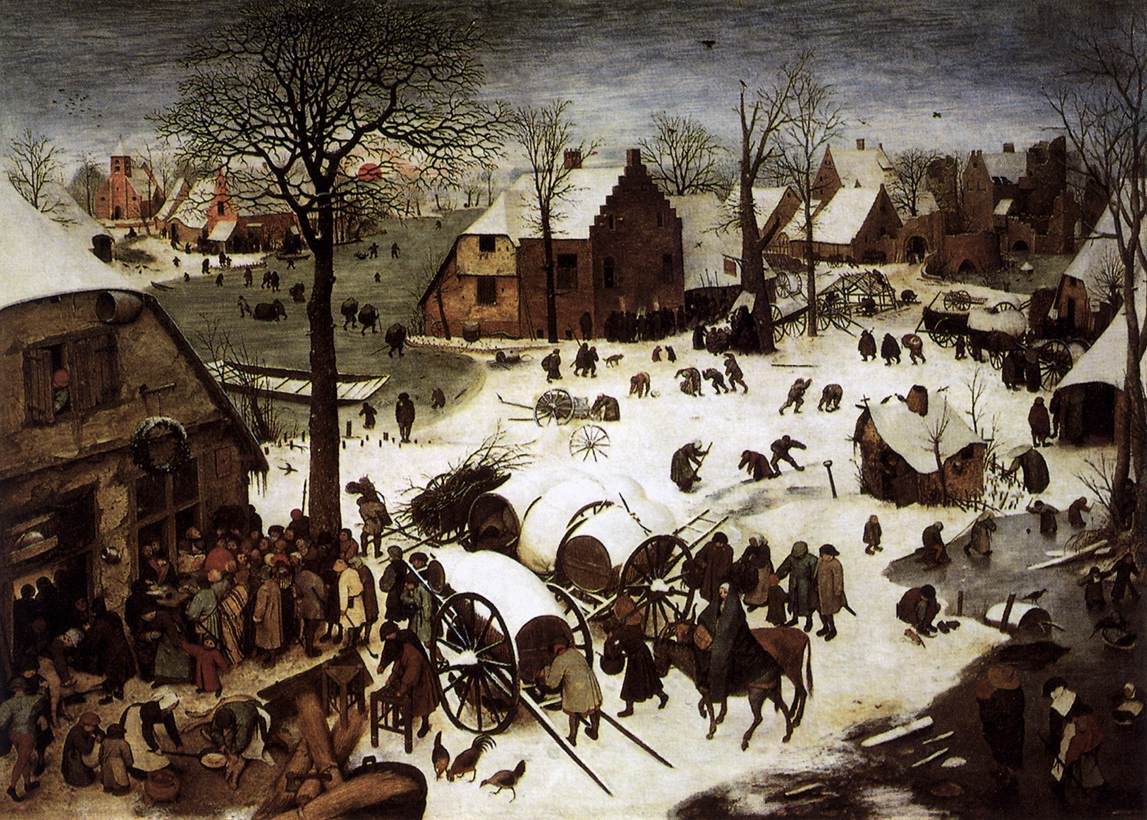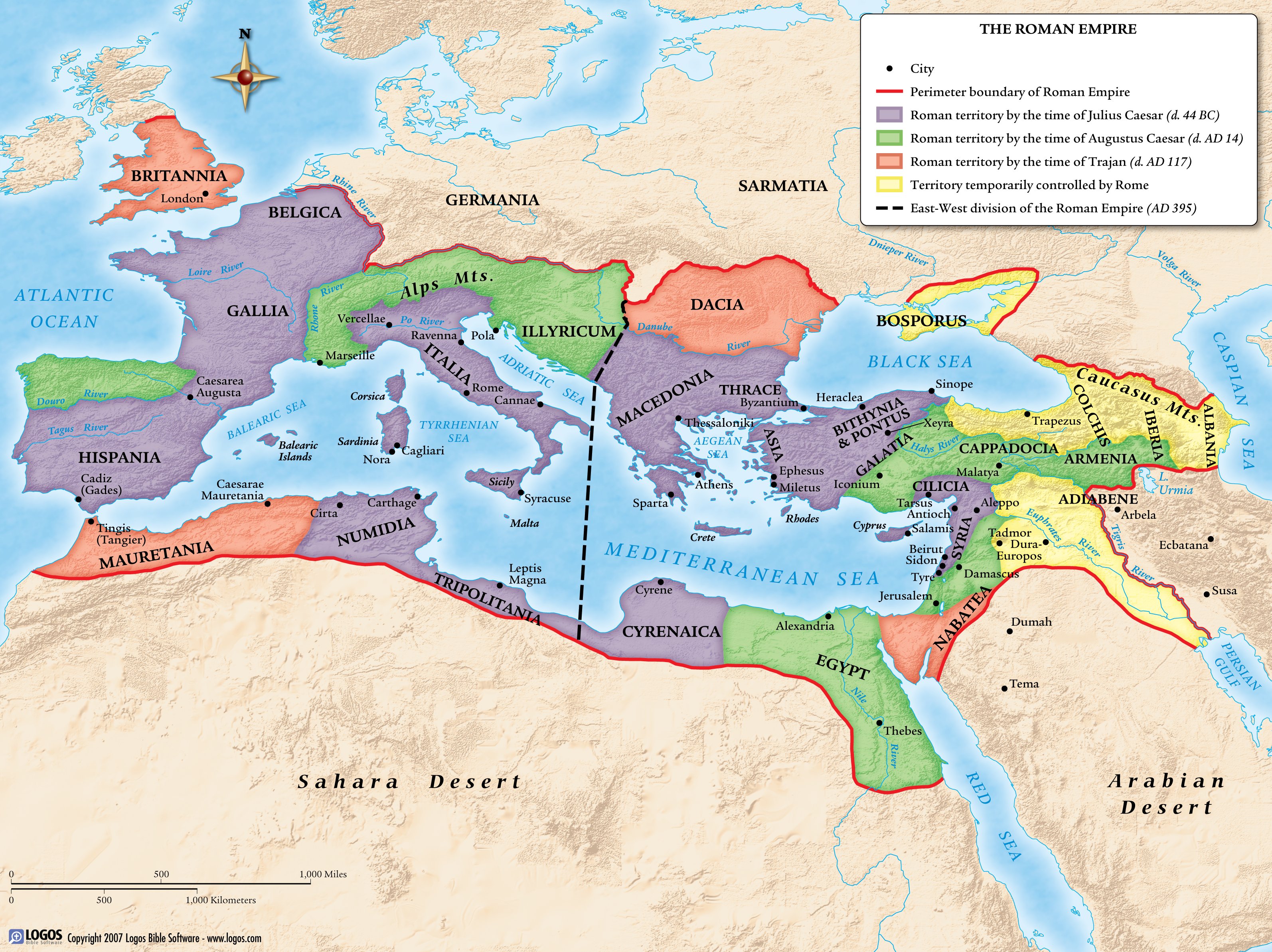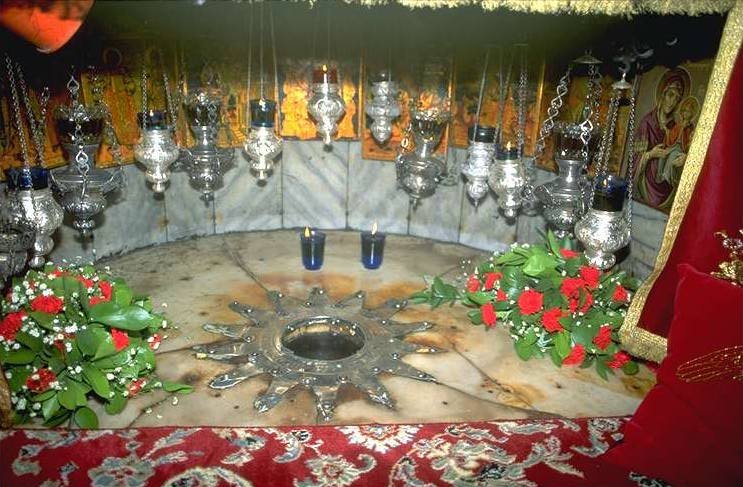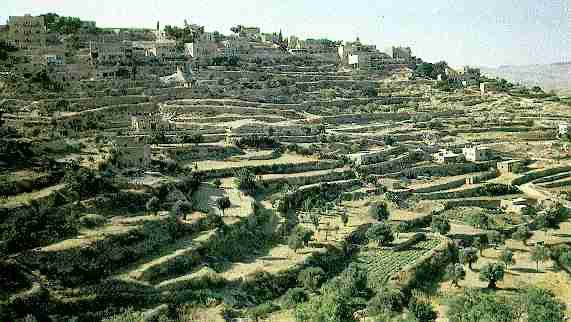Blog Post
Posted by Dion Todd December 23rd, 2024 2,685 Views 20 Comments
The Night Before Christmas from Refreshing Hope Ministries on Vimeo.
Imagine what it must have been like to be in Bethlehem, a cozy little town surrounded by green rolling hills, on the very first Christmas Eve over 2,000 years ago. Think about a time before we had electricity, twinkling Christmas lights and the happy holiday songs we sing today. The Christmas holiday had not been created yet.
It was a night unlike any other, special and full of wonder. Yet this miraculous event was hidden in the ordinary cloak of daily life, and most people did not even notice it had arrived.
Joseph and Mary lived in Nazareth, a small settlement in the Galilee region. At the time, Nazareth was a quiet country village primarily inhabited by Jewish families. It was known for its agricultural lifestyle, with inhabitants tending to their crops and livestock. With a population of only a few hundred people, Nazareth lacked the splendor of larger cities like Jerusalem.
Joseph was a carpenter by trade and likely learned his skills from his father. He would have been accustomed to working with wood and stone, creating tools, furniture, and building or repairing homes for the residents of Nazareth. Mary was a young woman of great faith and had been pledged to Joseph in marriage when the Angel Gabriel appeared to her:
(Luke 1:26–28 NKJV) ... the angel Gabriel was sent by God to a city of Galilee named Nazareth, to a virgin betrothed to a man whose name was Joseph, of the house of David. The virgin's name was Mary. And having come in, the angel said to her, "Rejoice, highly favored one, the Lord is with you; blessed are you among women!"
(Luke 1:29–33 NKJV) But when she saw him, she was troubled at his saying, and considered what manner of greeting this was. Then the angel said to her, "Do not be afraid, Mary, for you have found favor with God. And behold, you will conceive in your womb and bring forth a Son, and shall call His name JESUS. He will be great, and will be called the Son of the Highest; and the Lord God will give Him the throne of His father David. And He will reign over the house of Jacob forever, and of His kingdom there will be no end."
The Holy Spirit overshadowed Mary, and she conceived Jesus. Soon after, Caesar decreed that everyone in the Roman Empire should register in their hometown. Mary and Joseph were engaged, so they both traveled to Bethlehem.
(Luke 2:1–3 NKJV) And it came to pass in those days that a decree went out from Caesar Augustus that all the world should be registered. This census first took place while Quirinius was governing Syria. So all went to be registered, everyone to his own city.
(Luke 2:4–7 NKJV) Joseph also went up from Galilee, out of the city of Nazareth, into Judea, to the city of David, which is called Bethlehem, because he was of the house and lineage of David, to be registered with Mary, his betrothed wife, who was with child. So it was, that while they were there, the days were completed for her to be delivered. And she brought forth her firstborn Son, and wrapped Him in swaddling cloths, and laid Him in a manger, because there was no room for them in the inn.

During this era, the Roman Empire, with its wealth and might, had extended its reach across the Mediterranean. Rome was a sprawling empire that swallowed diverse cultures and lands.

Octavian's life took a dramatic and decisive turn at the age of seventeen when Julius Caesar, recognizing his potential, adopted him as his heir in 45 B.C. However, this defining moment in his life was soon eclipsed by a sudden and tragic event—the assassination of Julius Caesar just a year later. This incident not only marked a turning point in Octavian's personal journey but also set the stage for a new chapter in the history of Rome.
The young Octavian divided Rome with two others—Mark Antony and Lepidus, effectively dividing control of Rome's vast territories among themselves. For decades, the Mediterranean world had been filled with war and violence. Now that it was split into three pieces, it became far worse. These were years of bloody, brutal fighting for power and money in Rome and its divided provinces. Octavian and Antony pushed out Lepidus, then Octavian defeated Antony and Cleopatra's combined forces, and he took the title "Caesar Augustus" as ruler over all of Rome when he was thirty-six years old.
"Augustus" is a special name that means "exalted and sacred." Before Augustus, Rome had been a republic that prided itself on being a nation governed by laws and not by any man. No man was above the law in Rome. Augustus changed all of that. Rome became an empire, with him at the top. So, the first emperor of Rome was Caesar Augustus, and the month of August was named after him. For decades, the world Augustus lived in and that Jesus would be born into, the world of the Mediterranean basin, was wrecked by war, destruction, brutality, and immorality. The historian Will Durant captured it so beautifully:
"The lusty peninsula (of Rome) was worn out with twenty years of civil war. Its farms had been neglected, its towns had been sacked or besieged, much of its wealth had been stolen or destroyed. Administration and protection had broken down; robbers made every street unsafe at night; highwaymen roamed the roads, kidnapped travelers, and sold them into slavery. Trade diminished, investment stood still, interest rates soared, property values fell.
Morals, which had been loosened by riches and luxury, had not been improved by destitution and chaos, for few conditions are more demoralizing than poverty that comes after wealth. Rome was full of men who had lost their economic footing and then their moral stability: soldiers who had tasted adventure and had learned to kill; citizens who had seen their savings consumed in the taxes and inflation of war and waited vacuously for some returning tide to life them back to affluence; women dizzy with freedom, multiplying divorces, abortions, and adulteries."
Into this chaotic world, Jesus Christ was born, heralding the dawn of the first Christmas. It was during the reign of Caesar Augustus that a significant decree was issued – a call for a census, an extensive endeavor to register and count every person under Roman rule. This decree wasn't just a matter of record-keeping; it was a strategic move designed for more efficient taxation across the vast stretches of the Roman Empire. Known as the "first" census, it set a precedent for others that would follow.
The census decree from Caesar Augustus had a profound and far-reaching impact. A single command from his ivory palace set the entire known world into motion, compelling people to return to their ancestral homes for the census. Among them were Mary and Joseph, who embarked on a journey to Bethlehem. This journey was not just a compliance with Roman orders but a fulfillment of a prophecy spoken centuries earlier by the prophet Micah:
(Micah 5:2 NKJV) "But you, Bethlehem Ephrathah, Though you are little among the thousands of Judah, Yet out of you shall come forth to Me The One to be Ruler in Israel, Whose goings forth are from of old, From everlasting."
Through the mechanism of a Roman census, a divine plan gracefully unfolded, and it led Mary and Joseph to the very place where the ancient prophecy would be fulfilled.

Imagine Mary, deep in the late stages of pregnancy, setting out on this intimidating journey with Joseph. Their path wound through rolling hills and valleys, through groves of olive trees, and along narrow, rocky passes. At night, they would have camped in the open air. Despite the challenges, it would have also provided moments of companionship and reflection. At least they were together, and they had each other. It was a journey of hope—a pilgrimage leading to a night that would eternally be cherished as the very first Christmas.
As they arrived in Bethlehem, they found the small town teeming with travelers like themselves, all drawn by the census. Amidst this hustle and bustle, there was no room left in the inns, and no one took them into their house. When Mary began to have labor pains, they desperately needed shelter, so they found a small cave that was being used as a pen for livestock.
There, in the tranquility of a humble stable surrounded by a company of animals, Jesus was born. Far removed from the comforts of a conventional home, Mary tenderly wrapped her newborn son in cloth and gently laid Him in a manger, a simple feeding trough for the animals. It was a beginning marked with profound humility and grace. The most monumental event in history was simply recorded as:
'She gave birth to her firstborn Son.'
Far from her home in Nazareth, Mary was without the comforting presence of family and close friends, who would typically offer support and comfort during such a pivotal moment. The intimate details of Mary wrapping Jesus and placing him in the manger suggest the absence of a midwife, implying that it was only her and Joseph in those quiet moments.


In this context, the birth of Jesus in Bethlehem takes on a deeper, symbolic significance. He was known as the Lamb of God. Jesus was, without blemish, a perfect embodiment of purity and sacrifice. His birth in Bethlehem, amidst these temple lambs, even in their shelter, was poetically symbolic. The very setting whispered of the role He was to fulfill in the world—a role full of love, sacrifice, and redemption. The Lamb of God was born among the other temple lambs.
In the quiet fields surrounding Bethlehem, under a starlit sky, a group of shepherds watched over their flocks through the night. When an angel, radiant and awe-inspiring, appeared before them. The angel did not appear to King Herod at his palace but to simple shepherds out in the field.
The angel announced to them that Christ the Lord had been born, the Messiah, which must have filled the shepherds with awe and wonder. They were told they would find the newborn King not in a palace but nestled in a manger—a feeding trough for animals.
Jesus Christ's birth is a humble beginning for the One who would be known as the King of all kings. The Messiah, the Son of God, entered this world not amidst wealth and luxury but in a simple, unadorned cave in Bethlehem, a place that sheltered and smelled like livestock. There, among the sheep, lay the newborn Jesus. His first bed was a feeding trough.
The unblemished Lamb of God, born in a Bethlehem stable, would later be examined by Pontius Pilate, who declared, 'I find no fault in this man.' His beginnings were humble and modest, and His end so momentous and sacrificial. This story forms the very essence of the Christian faith.
Indeed, God had the power and thousands of years to plan the most magnificent entrance for His Son. He could have chosen for Jesus to be born to wealthy parents, in a grand palace, or even within the sacred walls of the temple. But in His infinite wisdom, God chose a different path. He selected a simple livestock cave for the birth of His Lamb. This choice alone speaks volumes about the nature of God, His love, and the message of Jesus. Great things come from small beginnings.
There is a simple, down-to-earth humility and lack of pomp about God that is so admirable. He deflates human pride, and He is the opposite of insecure. He chooses not to impress anyone. This characteristic was evident in Jesus' ministry. When the Pharisees demanded signs and wonders, Jesus said no and focused on teaching and healing instead. Similarly, when James and John wished to call down fire from heaven like Elijah on a village that had rejected them, Jesus simply advised them to move on to the next town. To know Him is to love Him.
It is worth noting that just as most people did not notice the birth of Jesus, most will not be ready for His return either:
(Matthew 24:36–39 NKJV) "But of that day and hour no one knows, not even the angels of heaven, but My Father only. But as the days of Noah were, so also will the coming of the Son of Man be. For as in the days before the flood, they were eating and drinking, marrying and giving in marriage, until the day that Noah entered the ark, and did not know until the flood came and took them all away, so also will the coming of the Son of Man be.
Yet, Noah knew... And he was ready. We should be as well. This holiday season, remember that Jesus is the reason we have seasons, for He created them, and may God richly bless you!
You can pray this with me if you like:
Prayer: Heavenly Father, I adore You. Thank You so much for sending Your Son, Jesus, to redeem me. Please help me get in tune with what You are doing on Earth today. Speak to me clearly so that I understand, fill me with Your Spirit, and don't pass me by. I want more of You in my life today. In the name of Jesus Christ, I pray. Happy Birthday, Jesus. Amen!
Note: It's Christmas week, y'all, and we are excited to share time joyous time with all of you! For those who may have missed the email, here is our 2024 Christmas Newsletter! Also, the Creation Photographers group theme of the week is "Wise Men Still Seek Him". All are welcome to join in with the theme or post anything that inspires you! To join, just click on the group name and then the join link on the page that will follow. As always, if you have a prayer need, we are here for you! We and the prayer team are ready to lift you up at our private prayer page: RHM Prayer Network.
Heavenly Father, I adore You. Thank You so much for sending Your Son, Jesus, to redeem me. Please help me get in tune with what You are doing on Earth today. Speak to me clearly so that I understand, fill me with Your Spirit, and don't pass me by. I want more of You in my life today. In the name of Jesus Christ, I pray. Happy Birthday, Jesus. Amen! ❤️🤟🏻🎄
In the rolling green hills of Bethlehem, a special breed of sheep was raised.... wow, I did not know this, it gave me chills when I read it. Thank you for all the history and background information you pass on to us. Merry Christmas and a blessed New Year to you and your family!
Thank you Father, thank you Jesus... I keep praying for your guidance and clarity in my life through the Holy Spirit ... Thank you Jesus for your ultimate sacrifice.
sharing the pastor's prayer: Heavenly Father, I adore You. Thank You so much for sending Your Son, Jesus, to redeem me. Please help me get in tune with what You are doing on Earth today. Speak to me clearly so that I understand, fill me with Your Spirit, and don't pass me by. I want more of You in my life today. In the name of Jesus Christ, I pray. Happy Birthday, Jesus. Amen!
Amen and Amen and Amen!!! You began with saying: "Imagine what it must have been like . . ." and you took us back there, back in time, with your thorough message!! Thank you so much!! And, yes, this we pray with all of our hearts as we adore and worship our Lord God and Savior!!! Let us all count our blessings thanking the Lord for taking on flesh in utmost humility, such love, and so much compassion!! Thank you Lord Jesus, AMEN!!! 🙏❤️
Comment from Sherry Mccosh
3 months ago
God bless you richly this Christmas Liesel!!
Good morning, y'all, praying you all have a most blessed Christmas week 🎄!
Comment from Nell Neathery
3 months ago
and y'all too! I saw my daughter Saturday, coming to visit from La., about 3 hours away. A very big surprise yesterday...my brother and his wife came to see me, maybe the 1st time in over 2 years. The brought very nice gifts to me and had lunch with me here in our dining room. Feeling blessed to have seen family for Christmas! I need to call my sisters tomorrow!
Comment from Sherry Mccosh
3 months ago
I pray that Father God bless you and Dion richly this Christmas and always!! You are loved!!
Thank you Pastor Dion for your beautful Christmas message. May you, Sylvia, your entire family and critters have a beautful and Merry Christmas. You're loved and appreciated. Thank you💜🕊️
Comment from Sherry Mccosh
3 months ago
I pray that God blesses you and your family this Christmas!
Dear Jesus, You are the most precious gift 💝 that Our Father in Heaven gave us ❤️! Christmas is about the most precious gift 🎁 that WE SHOULD cherish ALWAYS! Thank you Father in Heaven for the precious gift 💝 of Jesus, Amen 🙏❤️, Alleluia 🙏❤️, Amen 🙏❤️🙏❤️💝!!
Comment from Sherry Mccosh
3 months ago
May God bless you and your family richly this Christmas!
Good morning everyone, beautiful teaching Pastor. Wishing everyone a Blessed Christmas full of Grace . Amen
Sorry about the last post, my fingers don’t always do what i want 🤭
Comment from Sherry Mccosh
3 months ago
blessing on you and your family this Christmas!!
Comment from Liesel aka lisa Wardle
3 months ago
Oh, Roseanne, I completely understand, I seem to have the hardest time myself now typing with my shacky fingers! ❣️🎄
Comment from Sylvia Todd
3 months ago
God bless, Roseanne, merry Christmas 🎄!
Heavenly Father, I adore You. Thank You so much for sending Your Son, Jesus, to redeem me. Please help me get in tune with what You are doing on Earth today. Speak to me clearly so that I understand, fill me with Your Spirit, and don't pass me by. I want more of You in my life today. In the name of Jesus Christ, I pray. Happy Birthday, Jesus. Amen! Thank you Pastor Dion, this is an outstanding devotion today!! I am so thankful for Refreshing Hope Ministries and so very thankful to found this website. I know finding this site was not a mere accident like most people would think, it was sent to me from God! I pray for you and Sylvia for profound wisdom, peace and love. You are blessed by God Himself!!! Amen!!
The Night Before Christmas from Refreshing Hope Ministries on Vimeo. Imagine what it must have been like to be in Bethlehem, a cozy little town surrounded by green rolling hills, on the very first Christmas Eve over 2,000 years ago. Think about a time before we had electricity, twinkling Christmas lights and the happy holiday songs we sing today.... Read the full post here: The Night Before Christmas


Comment from Joe Miller
3 months ago
What a wonderful prayer!
Comment from Sherry Mccosh
3 months ago
I pray that God bless you and your family this Christmas!